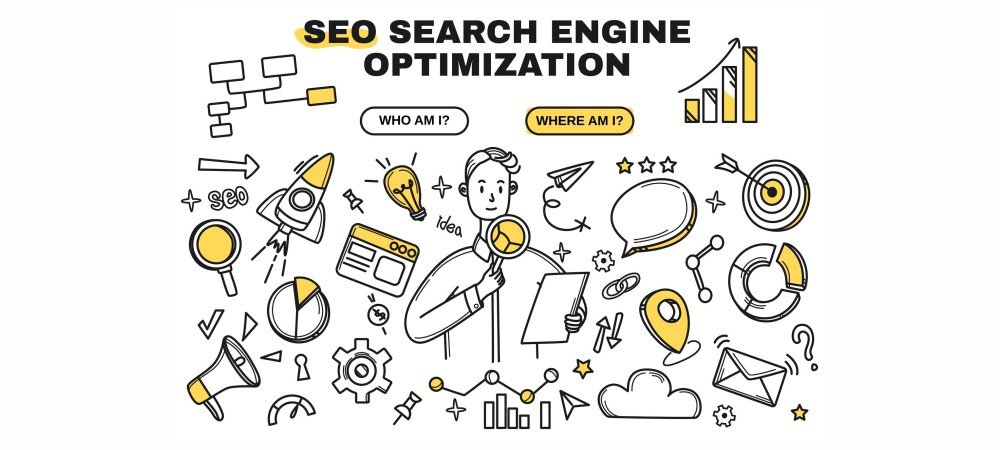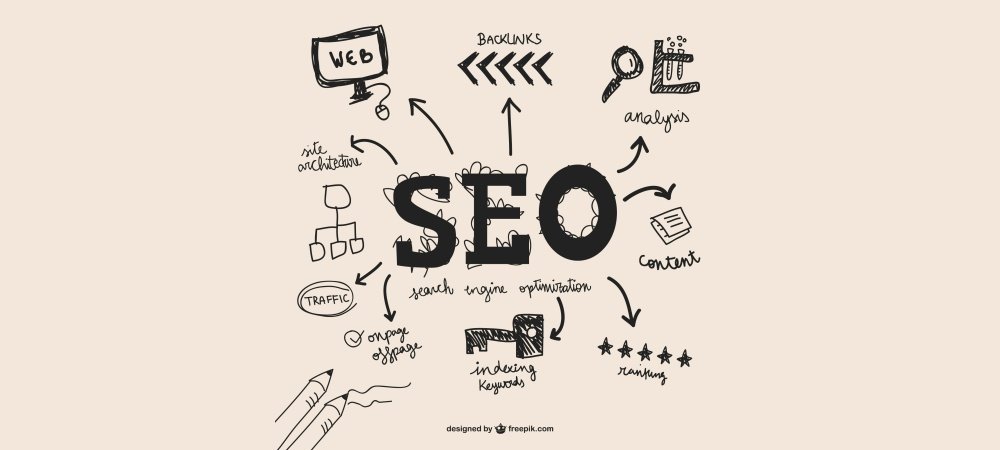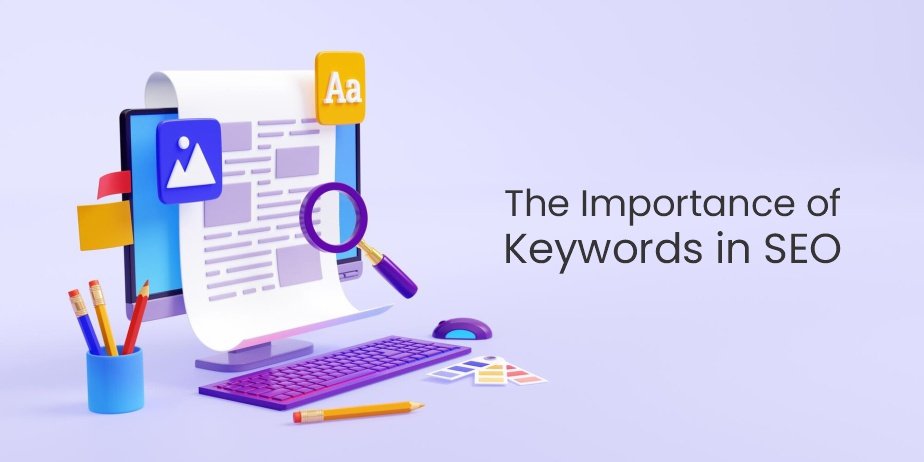Search Engine Optimization (SEO) is the practice of increasing the quantity and quality of traffic to your website through organic search engine results. It’s a multifaceted discipline requiring a blend of technical expertise, content creation skills, and a deep understanding of user behavior.
Defining Search Engine Optimization
Search Engine Optimization (SEO) is the art and science of improving your website’s visibility on search engines like Google, Bing, and others. It’s about making your website easily discoverable by people searching for products, services, or information related to your business.
SEO isn’t about tricking search engines; it’s about providing value to users and aligning your website with their search intent. Effective SEO strategies lead to increased organic (non-paid) traffic, driving more potential customers to your site.

SEO is not a one-time fix but rather an ongoing process. Algorithms constantly evolve, requiring continuous adaptation and refinement of your strategies. It involves a combination of on-page, off-page, and technical optimization techniques, all aimed at improving your website’s ranking in search results pages (SERPs).
The ultimate goal is to achieve a higher ranking for relevant keywords, resulting in increased visibility and ultimately, more conversions.
A successful SEO strategy involves a holistic approach, considering all aspects of your online presence. This includes the content you create, the technical aspects of your website, and the way you build relationships and authority within your industry. Ignoring any of these elements can severely hinder your SEO efforts. It’s a long-term investment that requires patience, consistency, and a willingness to learn and adapt.
Understanding SEO is crucial for businesses of all sizes, from small startups to large corporations. It’s a cost-effective way to reach a large audience and generate leads without relying solely on paid advertising. Mastering SEO can significantly impact a business’s bottom line, making it a vital component of any successful digital marketing strategy.
How Search Engines Actually Work
Search engines like Google use complex algorithms to crawl, index, and rank websites. The crawling process involves automated bots that traverse the web, following links and collecting information about web pages. This information is then processed and stored in an index, a massive database of web pages. When a user performs a search, the search engine’s algorithm analyzes the query and retrieves relevant pages from its index.

The ranking process is where the magic happens. The algorithm uses hundreds of factors to determine the order in which pages appear in the search results. These factors include the relevance of the page content to the search query, the website’s authority and trustworthiness, the user experience, and the technical aspects of the website. No single factor determines ranking; it’s a complex interplay of various elements.
Understanding how search engines work is fundamental to effective SEO. By focusing on the factors that influence ranking, you can optimize your website to improve its visibility. This involves understanding keyword research, content creation, link building, and technical optimization, all of which contribute to a higher ranking. The more you understand the intricacies of search engine algorithms, the better equipped you are to succeed.
It’s important to note that search engine algorithms are constantly evolving. Google, for example, regularly updates its algorithm to improve search results and combat manipulative SEO practices. Staying informed about algorithm changes and adapting your strategies accordingly is crucial for maintaining a strong online presence. Ignoring these updates can lead to a significant drop in rankings.
The Importance of Keywords in SEO
Keywords are the words and phrases people type into search engines to find information. Identifying the right keywords is crucial for SEO because they’re the bridge between what people are searching for and what your website offers. By incorporating relevant keywords into your website content and metadata, you increase the likelihood that your pages will appear in search results for those specific terms.
Keyword research involves identifying the terms and phrases most relevant to your business and target audience.
This process often involves using keyword research tools that provide data on search volume, competition, and related keywords. Understanding search intent is also crucial – you need to know what users are looking for when they use a particular keyword.

Effective keyword usage goes beyond simply stuffing keywords into your content. It’s about using keywords naturally and contextually within your website copy, meta descriptions, and image alt text. Over-optimization (keyword stuffing) can actually harm your rankings, as search engines penalize websites that attempt to manipulate their algorithms.
Choosing the right keywords is a strategic decision. You need to balance the potential traffic from high-volume keywords with the competition for those keywords. Targeting long-tail keywords (longer, more specific phrases) can often be more effective, as they attract more qualified leads with less competition. A well-defined keyword strategy is the foundation of any successful SEO campaign.
On-Page Optimization Techniques Explained
On-page optimization refers to the techniques used to optimize individual web pages to rank higher and earn more relevant traffic in search engines. This involves optimizing various elements within your website’s content and HTML source code. These elements work together to make your pages more appealing to both search engines and users.
Title tags are crucial for on-page optimization. They’re the clickable headlines in search results and should accurately reflect the page’s content, including relevant keywords. Meta descriptions, while not directly impacting ranking, are important for attracting clicks from search results. They provide a brief summary of the page’s content.

Header tags (H1, H2, H3, etc.) structure your content and help search engines understand the hierarchy of information on your page. Using relevant keywords in your header tags improves the page’s relevance to specific search queries. Image alt text describes images for both search engines and visually impaired users, providing another opportunity to incorporate keywords naturally.
Internal linking is a powerful on-page optimization technique. Linking relevant pages within your website improves navigation and distributes link equity, helping search engines understand the relationship between different pages on your site. This also improves user experience by guiding visitors to other valuable content.
Off-Page Optimization – Building Authority
Off-page optimization focuses on activities outside your website that influence your search engine rankings. It’s all about building your website’s authority and trustworthiness in the eyes of search engines. This is achieved primarily through link building and other forms of online reputation management.
Link building involves acquiring backlinks from other reputable websites. A backlink is a link from another website to your website.
Search engines view backlinks as votes of confidence, indicating that your website offers valuable content. The more high-quality backlinks you have, the higher your website’s authority and ranking potential.

Guest blogging on relevant websites is a popular link-building strategy. By writing articles for other websites in your niche, you can include links back to your own website, increasing your exposure and building authority.
Participating in online communities and forums relevant to your industry can also help build relationships and generate backlinks.
Social media engagement is another important aspect of off-page optimization. While social media signals aren’t a direct ranking factor, a strong social media presence can indirectly influence your SEO by driving traffic to your website and building brand awareness. This increased visibility can lead to more backlinks and higher rankings.
Technical SEO – A Site’s Foundation
Technical SEO focuses on the technical aspects of your website that impact search engine crawlability, indexability, and ranking. It’s the foundation upon which all other SEO efforts are built. A poorly optimized website, regardless of its content quality, will struggle to rank well.
Website speed is a crucial technical SEO factor. Slow-loading websites frustrate users and negatively impact search engine rankings.
Optimizing images, minimizing HTTP requests, and using a content delivery network (CDN) can significantly improve website speed. Mobile-friendliness is equally important, as Google prioritizes mobile-first indexing.

XML sitemaps help search engines crawl and index your website’s content efficiently. They provide a roadmap of your website’s pages, making it easier for search engines to discover and index all your content.
Robots.txt is a file that tells search engines which parts of your website should not be crawled. Properly configuring your robots.txt file is essential for preventing search engines from crawling unwanted content.
Structured data markup helps search engines understand the content on your pages. This improves the accuracy of search results and can lead to rich snippets, which enhance your appearance in search results. Regularly auditing your website for technical issues is crucial for maintaining a healthy website and maximizing its SEO potential.
Content is King – Quality Over Quantity
Content is the cornerstone of successful SEO. Search engines prioritize websites that provide high-quality, relevant, and engaging content. While quantity might seem important, quality consistently trumps quantity. Creating valuable content that satisfies user search intent is far more effective than publishing large volumes of low-quality content.
High-quality content is well-written, informative, and engaging. It provides value to the reader and addresses their needs. It’s also optimized for search engines, incorporating relevant keywords naturally and contextually. This means focusing on providing a comprehensive and helpful experience for the user, not just trying to rank for keywords.
Creating a content calendar can help you plan and schedule your content creation efforts. This ensures a consistent flow of fresh, high-quality content, keeping your website updated and engaging for both users and search engines. Content promotion is also vital; sharing your content across various channels can increase its reach and visibility.
Understanding your target audience is crucial for creating relevant content. By understanding their interests, needs, and pain points, you

